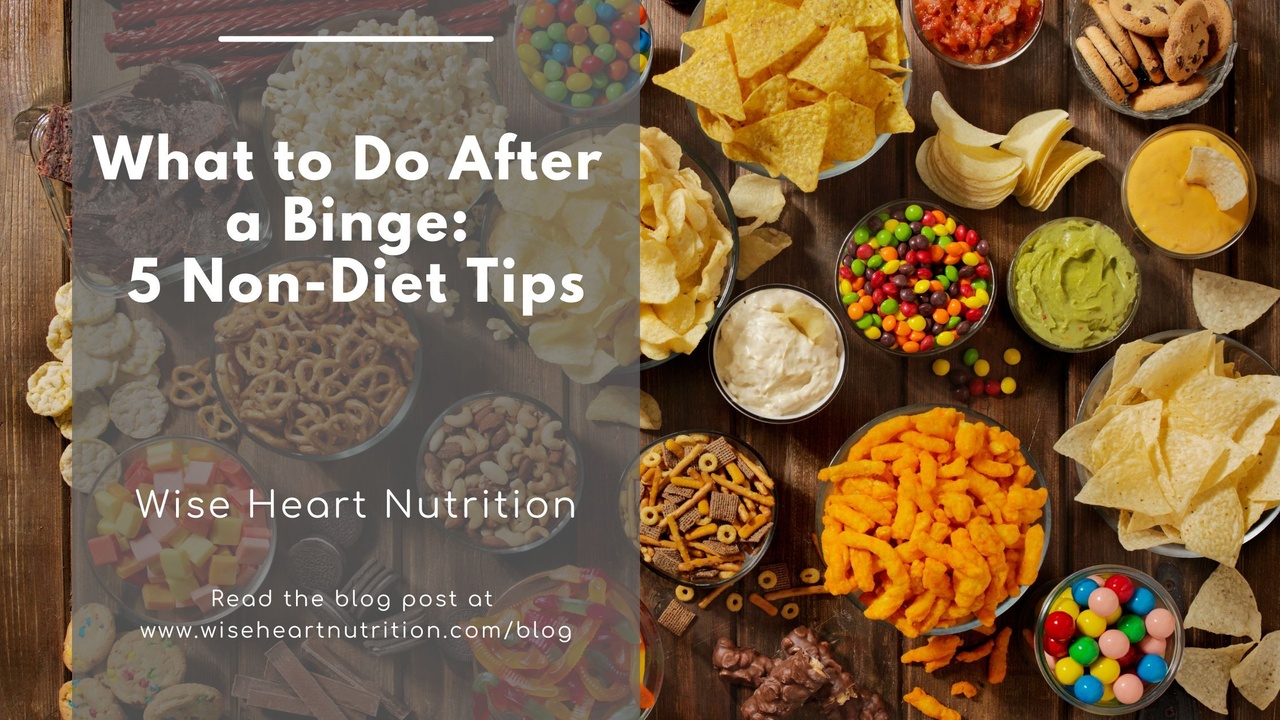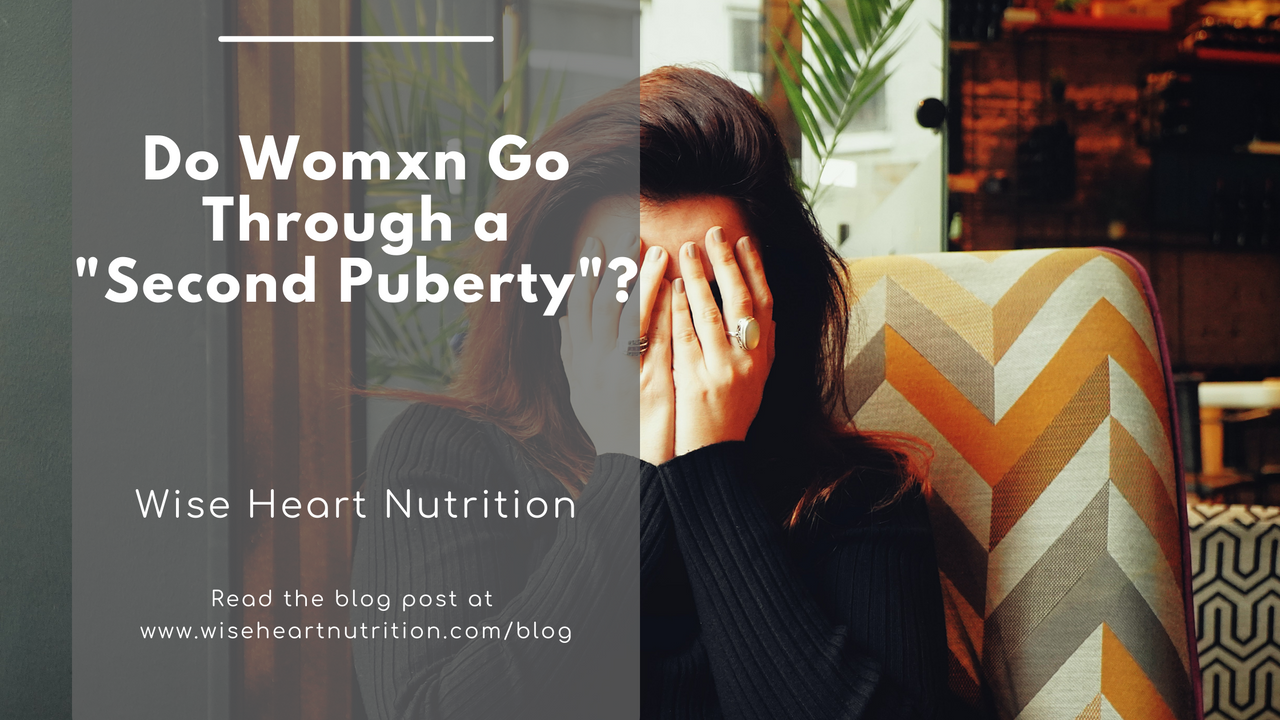Wise Heart Nutrition Blog:
All Things Anti-Diet, Intuitive Eating, and ADHD
5 Tips to Improve Self-Esteem

Self-esteem can be a major area of confusion and heartache for many (ok, probably most). In order for our clients at Wise Heart Nutrition to truly experience progress in healing their relationship with food, we typically have to spend some time addressing self-esteem. First of all let’s clarify what self-esteem really is and why it’s important to our everyday lives. Then we’ll get to the good stuff - 5 steps to improve your self-esteem.
What exactly is self-esteem?
Self-esteem is your subjective sense of overall personal worth or value. The key word here is subjective - self-esteem may not be based on reality, but rather our perception. Similar to self-respect, it describes your level of confidence in your abilities and personal attributes.
Some sources that contribute to low self-esteem include:
- Living through negative or traumatic experiences
- Lacking access to positive support systems
- Engaging in or taking actions that don’t line up with our values
- Societal norms ...
What to Do After a Binge: 5 Non-Diet Tips

So, you've just experienced a binge eating episode... What do you do now?
Many individuals, (especially ADHDers and folx with a history of dieting) struggle with binge or compulsive eating, and more often than not, the binge eating is automatically seen as the "problem" to be fixed. This often results in deprivation and restriction to "make up for overeating", which then leads to more binge eating. In addition, beliefs about not having "enough willpower" or "discipline", as well as guilt and shame, often show up after or during a binge due to our society creating the myth that you should, or even can, have control over food. Binge eating, negative emotions, and restriction often spirals into a vicious cycle, which can feel impossible to break.
The cycle (see graphic below) has several stages: the binge, the sense of emotional relief or numbness, the thoughts and feelings that follow, the planning, the disruption to the plan, and then back to the binge. Diet culture has taught us ...
What Is Body Neutrality and How Can I Start Practicing It?

What If Body Positivity Isn't The Answer?
When you are first exploring what it would look like to not dislike your body, as media at large directs you to do, the body positivity movement can be met with rolled eyes and thoughts of “are you kidding me” and “that’s wayyy too hard”. And yeah, when starting from a place of hatred, disgust or dismissal of your body, it can seem an impossible task to ever reach a place of love, appreciation, and acceptance. Enter body neutrality.
While self love regarding our bodies is important, it’s not always attainable in our society where we are constantly flooded with messages about an “ideal body” that are rooted in white, colonial, and fatphobic systems. Here are some important reasons why body-positivity and body-love aren’t going to work for everyone:
- The mainstream body positivity movement isn’t actually inclusive of ALL bodies (The original creators of the movement - fat and POC women - have been noticeably overshadowed in the movement’...
Is Food Variety Important and Possible with a Neurodivergent Brain?

Are nutritional guidelines helpful for everyone?
Dietary variety (eating lots of different foods from all the different food groups) has long been considered a pillar of “good nutrition”. Blanket dietary recommendations like this are intended to support the greater population, but when these guidelines are solely focused on nutrients and physiological health, many groups of people get overlooked, left out, and placed in a disadvantaged position where health and wellness (when measured by whether or not a person is meeting a given recommendation) are essentially out of reach. And when these folx continue to chase after an impossible standard, other aspects of health (mental, emotional, relational, financial, etc.) suffer… and that isn’t really supportive of health at all.
When we talk about health, instead of trying to fit everyone into one box, we need to consider and understand what is REALISTIC, CONTEXTUAL, ACCESSIBLE, POSSIBLE, and SUSTAINABLE, and we need to recognize that...
Do Womxn Go Through a "Second Puberty"?

Remember puberty? That mostly awful phase of ~sexual maturation~ which for many of us felt like the worst time ever? Well, you might wanna sit down for this …
There’s a buzz going around that womxn (specifically folx who are AFAB) actually go through a “second puberty” in their early to mid twenties. Now, it’s not technically titled puberty 2.0, but it’s been casually called this because of the further physical changes your body typically undergoes during this time. Just when you thought you had gotten used to your body, you might find it changing again. And then probably again. And again. And then probably again. *News flash: our bodies are constantly changing over the course of our lives.* But for now, let’s focus on that mid-20’s time of life.
Some of the changes that you may see in your early to mid twenties can include:
-
psychological/emotional changes
-
bone mass peak
-
muscle mass peak
-
weight changes
-
stretch marks
-
acne
-
metabolic changes...
